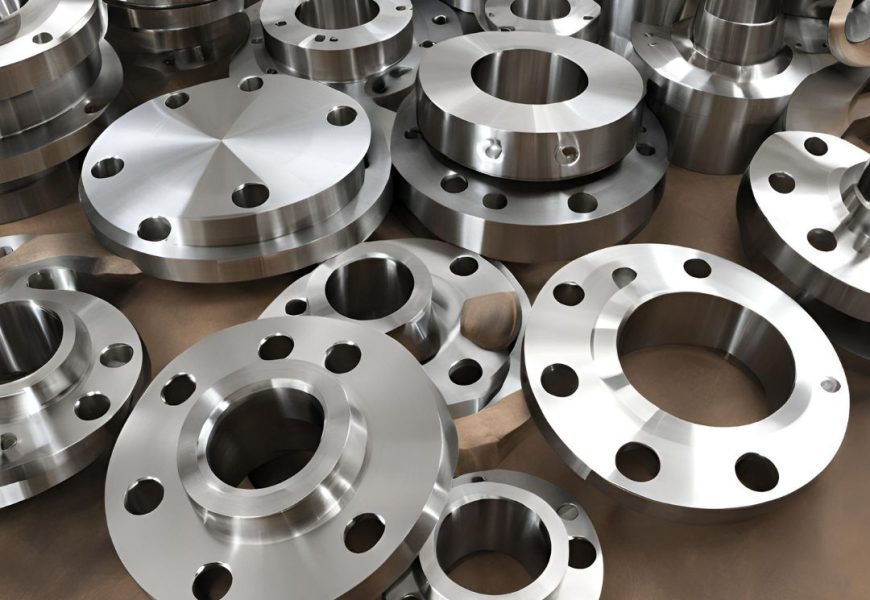Stainless steel flanges are integral components in a variety of industrial applications, including piping systems, chemical plants, and food processing facilities. They ensure the secure connection of pipes, valves, pumps, and other equipment, preventing leaks and maintaining system integrity. To ensure that these flanges perform optimally over their lifespan, regular maintenance is essential. This blog will provide comprehensive maintenance tips for stainless steel flanges and emphasize the importance of sourcing from a reputable stainless steel flanges manufacturer.
Importance of Regular Maintenance
Proper maintenance of stainless steel flanges prevents issues like corrosion, leakage, or structural failures. By maintaining the integrity of these components, you ensure the overall efficiency, safety, and reliability of the system they serve. Below are key maintenance practices to keep your stainless steel flanges in optimal condition.
Routine Inspection
Visual Inspection:
- Conduct routine visual inspections to detect any signs of wear, corrosion, or damage.
- Look for discoloration, pitting, or rust spots on the flange surfaces, which may indicate the onset of corrosion.
Physical Inspection:
- Use appropriate tools to check for any deformation or warping.
- Ensure all bolts and nuts are properly tightened and that there are no loose connections. Loose connections can lead to leaks and compromised system integrity.
Cleaning
Regular Cleaning:
- Regularly clean the flanges to remove dirt, debris, and chemical residues.
- Use mild detergents and warm water for cleaning. Avoid abrasive cleaners that can scratch the stainless steel surface, as scratches can harbor corrosion.
Post-Installation Cleaning:
- After installation, clean the flanges to remove any lubricants, sealants, or contaminants that may have been introduced during the installation process.
- Rinse thoroughly with clean water and dry with a soft cloth to prevent water spots, which can also lead to corrosion.
Corrosion Prevention
Protective Coatings:
- Apply protective coatings to enhance the corrosion resistance of the flanges. Various coatings are available that can provide additional protection against corrosive environments.
- Ensure the coatings used are compatible with the specific environment and the types of fluids the flanges will be exposed to.
Environmental Considerations:
- In harsh environments, consider using higher-grade stainless steel flanges with better corrosion resistance.
- Protect the flanges from direct exposure to corrosive substances and extreme temperatures. Where necessary, use insulation or protective coverings.
Proper Storage
Indoor Storage:
- Store stainless steel flanges indoors in a clean, dry environment. This prevents exposure to moisture and contaminants that can lead to corrosion.
- Use appropriate shelving or storage racks to keep the flanges off the ground and avoid physical damage.
Outdoor Storage:
- If outdoor storage is necessary, cover the flanges with protective tarps or store them in sealed containers to shield them from the elements.
- Ensure proper ventilation to prevent condensation and moisture buildup, which can cause corrosion.
Lubrication
Regular Lubrication:
- Apply appropriate lubricants to flange bolts and nuts to prevent seizing and ensure easy disassembly when needed.
- Use lubricants compatible with stainless steel and suitable for the operating environment to avoid chemical reactions that could cause corrosion.
Avoid Over-Lubrication:
- Avoid excessive lubrication, which can attract dirt and debris, leading to potential contamination and operational issues.
Gasket Maintenance
Regular Inspection:
- Inspect gaskets regularly for signs of wear, damage, or degradation. Gaskets play a critical role in ensuring a tight seal and preventing leaks.
- Replace any gaskets showing signs of deterioration to maintain a proper seal and prevent leaks.
Proper Installation:
- Ensure gaskets are installed correctly, aligned properly, and tightened evenly. Incorrect installation can lead to leaks and compromised flange integrity.
Professional Maintenance Services
Regular Servicing:
- Schedule regular maintenance services with professionals who specialize in stainless steel flanges.
- Professional servicing ensures that all components are thoroughly inspected, cleaned, and maintained.
Choosing the Right Manufacturer:
- Select a reputable stainless steel flanges manufacturer who provides high-quality products and maintenance support.
- A reliable manufacturer ensures that the flanges are made to industry standards and offers guidance on proper maintenance practices.
Conclusion
Maintaining stainless steel flanges is crucial for their longevity, reliability, and optimal performance. Regular inspections, cleaning, corrosion prevention, proper storage, lubrication, and gasket maintenance are all essential steps to keep these components in excellent condition. Choosing a dependable stainless steel flanges manufacturer ensures you receive high-quality products designed to withstand demanding conditions. When properly maintained, stainless steel flanges deliver exceptional performance, contributing to the overall safety and efficiency of your systems. By adhering to these maintenance tips, you can maximize the lifespan and functionality of your stainless steel flanges, saving time, resources, and potential system disruptions.









